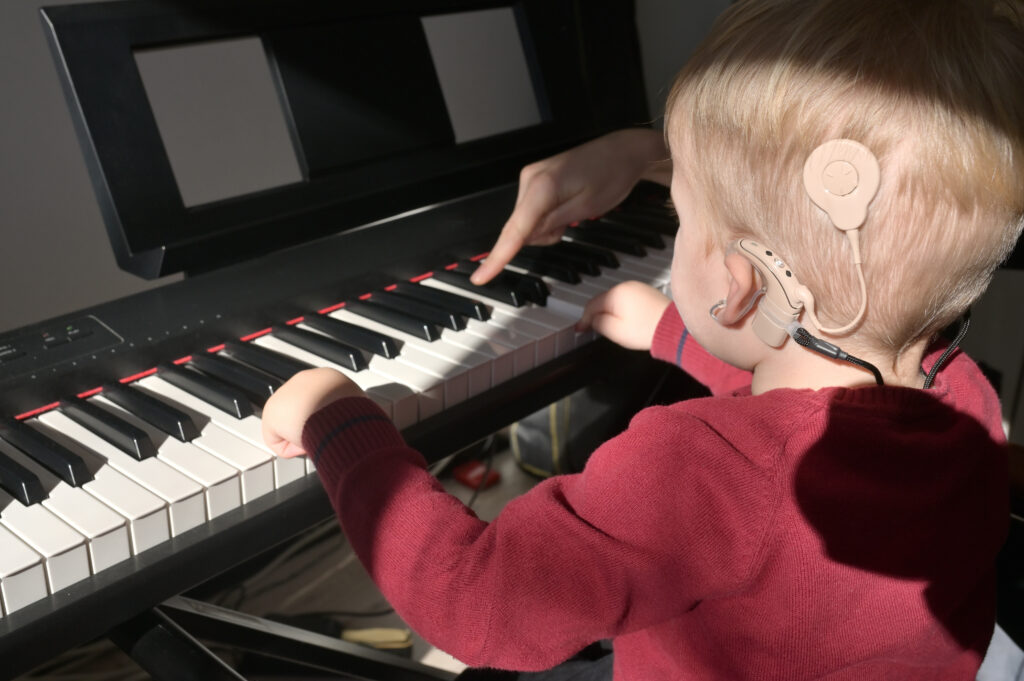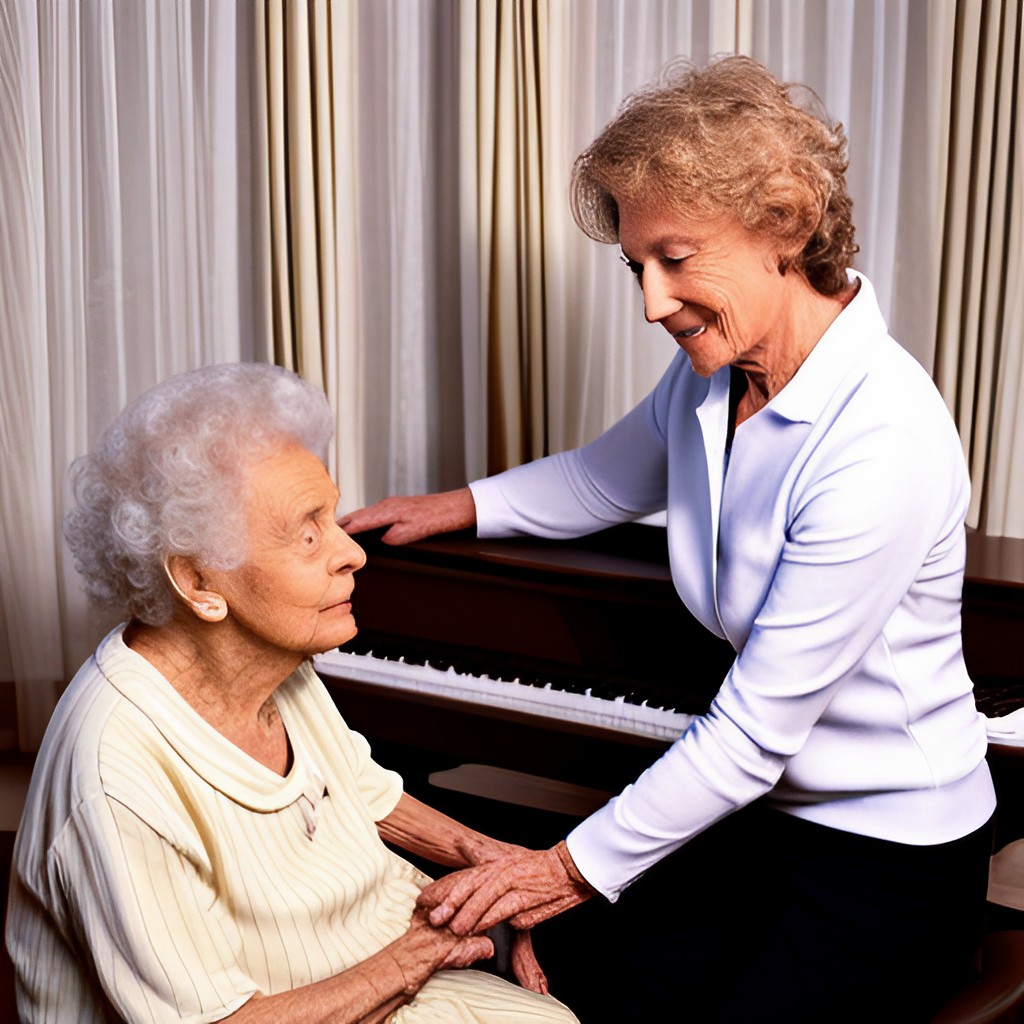Have you ever turned to music to lift your mood, relieve stress, or escape a difficult situation? If so, you are aware of the therapeutic benefits of music. For centuries, music therapy has been used to enhance the physical, emotional, cognitive, and social well-being of individuals. It involves using musical interventions to help people of all ages.
Music therapy is an evidence-based service that uses music to meet the physical, emotional, cognitive, and social needs of patients. From reducing anxiety and depression, to decreasing pain levels and improving memory, music therapy has been shown to help patients across a range of conditions. For instance, music therapy has been used successfully in dementia care to help patients recall memories and increase social interaction. Additionally, research has proven that music therapy reduces agitation and aggression in patients with Alzheimer’s.

At Patient Advocate Match, we believe in the transformative power of music therapy and its ability to change lives in healthcare. We are excited to have Karla Wilson, a certified music therapist, as a speaker at our upcoming virtual Senior Care Summit, starting on March 1. If you are interested in exploring how music therapy can help improve the quality of life of older adults, we invite you to join us at the Summit.
Music therapy has been shown to have numerous positive effects on seniors, including improving their mood, reducing anxiety, decreasing pain, enhancing memory and verbal communication, and promoting social engagement. For example, studies have found that music therapy can help seniors with dementia recall memories and emotions associated with music, reduce behavioral symptoms, and enhance their overall quality of life. We have heard many stories of non-verbal dementia patients belting out the words to their favorite song or hymn.
Music therapy has been used for centuries to promote healing and wellness. It involves using music as a tool to help patients achieve their therapeutic goals, whether those goals are physical, emotional, cognitive or social in nature. For seniors, music therapy has shown great promise as a non-invasive and enjoyable way to reduce stress and anxiety while enhancing overall well-being. Many hospice agencies offer some form of music therapy for their patients included in their services.
Studies have shown that seniors who receive music therapy experience improvements in mood, memory recall, verbal communication abilities and social engagement. For those with dementia or Alzheimer’s disease in particular, music therapy can be especially beneficial. Patients have been known to remember memories associated with specific songs from their pasts or become more engaged with others when participating in group sing-alongs.

JasperArt_2023-05-23_08.43.21_1_upscaled.jp
One study conducted by the American Music Therapy Association found that music therapy significantly reduced depression levels among seniors living in nursing homes. Additionally, it was found that these patients experienced fewer behavioral problems when receiving regular sessions of personalized song choices.
Aside from promoting emotional benefits like relaxation and happiness through listening to familiar songs or playing instruments themselves; there are physical benefits too! It has been shown that after just 30 minutes of listening to calming music each day over several weeks- people suffering from high blood pressure saw significant decreases in systolic numbers (the top number), reducing their risk for heart disease.
Another study showed that patients who listened to classical music before surgery had lower levels of anxiety than those who didn’t. This is because music has a relaxing effect on the body and can help reduce stress hormones like cortisol, which are known to increase inflammation throughout the body.
As a directory of healthcare professionals, including music therapists, we are committed to providing our clients with the latest information and resources to support their healthcare journey. Our Senior Care Summit is an opportunity to learn from experts like Karla Wilson who are passionate about promoting the health and well-being of seniors through music therapy. We hope to see you there!

By zinkevych Adobe Stock Photos
Music therapy has become increasingly popular among healthcare professionals because of its numerous benefits for patients’ physical, emotional, cognitive, and social well-being. For seniors dealing with Alzheimer’s or dementia, music therapy can be especially beneficial in managing symptoms such as anxiety or depression.
Moreover, group sessions provide a sense of social interaction, promoting positive emotional responses among seniors, and improving their overall well-being.
As healthcare continues to evolve, innovative therapies are emerging that provide patients with a holistic approach to healing. One of these therapies, music therapy, is gaining recognition for its life-changing benefits. At Patient Advocate Match, we are committed to helping people access healthcare resources that can make a real difference in their lives.
We invite you to join us at our virtual Senior Care Summit to learn more about the life-changing benefits of music therapy. Our goal is to provide compassionate and empathetic care to every patient, and we believe music therapy is a powerful tool that can help individuals find renewed strength and hope. Let’s work together to make a difference in healthcare!
In conclusion, music therapy is an effective tool for improving the quality of life of seniors living with Alzheimer’s or dementia. It has been shown to reduce anxiety, depression, and behavioral symptoms while enhancing cognitive abilities and memory recall. At Patient Advocate Match, we encourage families dealing with chronic illness to explore the benefits of music therapy in alleviating stress and promoting self-care. We invite you to join us at the Senior Care Summit starting on March 1st to learn more about this transformative therapy from certified professionals like Karla Wilson. Together we can improve the lives of seniors living with chronic conditions.
Thanks for stopping by and spending a few minutes with us here on our blog. We hope you have gained some insight into music therapy. We hope to see you again soon!
Pam
“Matching the Right Healthcare Resources for the Right Reasons.”
Resources:
Karla Wilson Certified Music Therapist
https://positivepsychology.com/music-therapy-benefits/
https://my.clevelandclinic.org/health/treatments/8817-music-therapy


